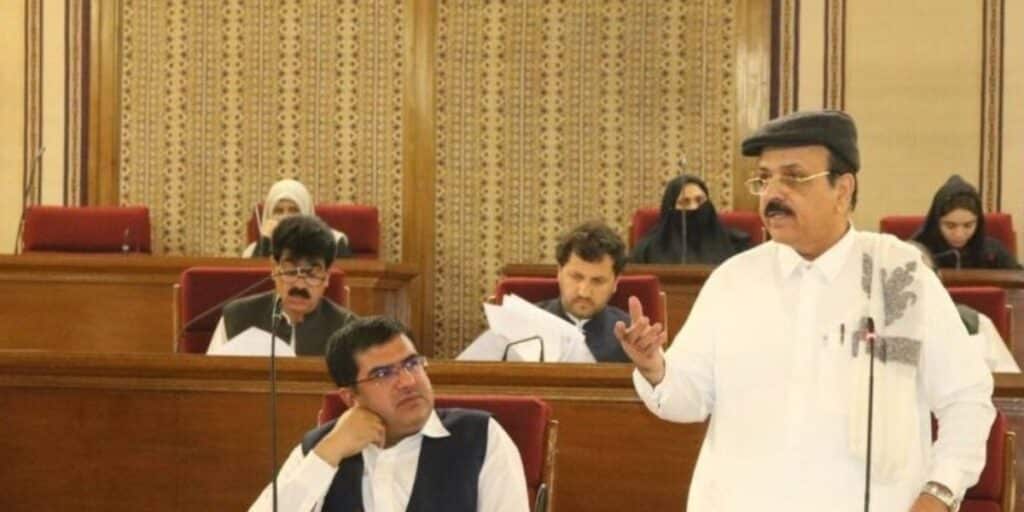QUETTA: The Balochistan Assembly witnessed sharp exchanges and a dramatic walkout as lawmakers fiercely debated the Water and Mineral Bill, with deep divisions emerging over provincial control of natural resources.
During the heated session, Mir Asad Baloch, leader of the Balochistan National Party (BNP-Awami) and a member of the provincial assembly, delivered a pointed critique of federal policies concerning the province’s mineral assets.
He strongly asserted that Balochistan’s natural resources are the collective property of its people—not the federal government nor any individual stakeholder.
“Balochistan’s minerals are not private assets; they are a shared inheritance of this land. Unfortunately, most of these resources have been handed over to the federal government, which is a clear injustice,” Asad Baloch stated.
Also Read: Balochistan Assembly passes resolution against Indian aggression following Pahalgam incident
He added that the transfer of control over mines and minerals to federal authorities undermines the spirit of the 18th Constitutional Amendment, which promised greater provincial autonomy.
“Our strength lies in our mineral wealth. Without it, this land would be barren. Stripping us of our resources is equivalent to stripping us of our future,” he emphasized.
The session took a dramatic turn when opposition lawmakers, led by former Chief Minister Dr. Abdul Malik Baloch, walked out in protest against the bill.
Tensions escalated further when Asad Baloch dismissed the walkout as “political theatre,” sparking strong backlash.
Dr. Abdul Malik Baloch condemned the remark, calling it disrespectful and dismissive of legitimate dissent.
“This is not drama—it is a constitutional protest. Reducing serious concerns over provincial rights to theatrics is both inappropriate and irresponsible,” he responded.
Adding to the criticism, Opposition Leader Younus Zahri questioned the seriousness of legislative procedures.
“Members are often absent during bill presentations, yet decisions are being pushed through. If lawmakers aren’t present to debate, such legislation should not even be tabled,” he said.
The debate reflects broader frustration in Balochistan over perceived federal overreach and the erosion of provincial control promised under the constitutional framework.
The Water and Mineral Bill, now at the center of the controversy, is expected to face continued resistance from opposition parties and resource-rights advocates.





